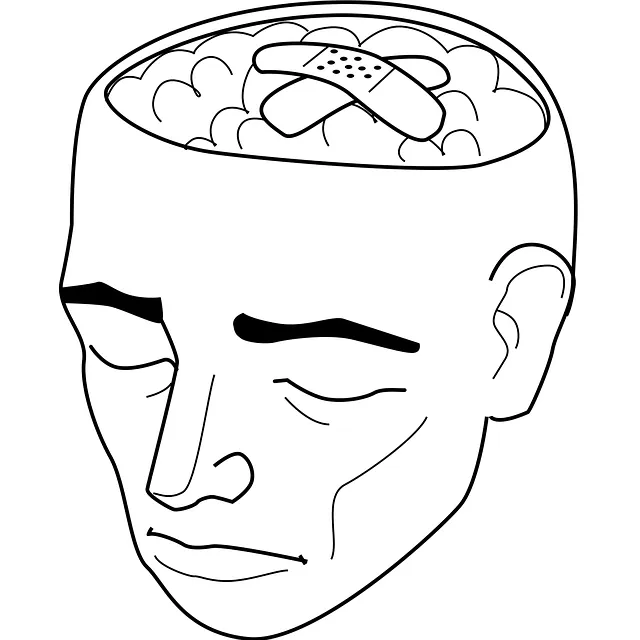Cultural competency at Kaiser Permanente mental health locations in Greenwood Village is a holistic approach to care, prioritizing understanding and respect for patients' diverse identities. Through comprehensive training, including mindfulness meditation, conflict resolution, and cultural sensitivity workshops, professionals create inclusive environments that improve patient satisfaction and outcomes. Interactive education, journaling exercises, and self-care routines enhance providers' cultural awareness, resilience, and job satisfaction. Evaluating the program's impact through surveys, patient outcomes, and feedback ensures continuous improvement tailored to the multicultural patient population.
Healthcare provider cultural competency training is essential in today’s diverse society. Effective training equips professionals with the skills to deliver culturally sensitive care, enhancing patient outcomes and building stronger communities. This article explores strategies employed by industry leaders like Kaiser Permanente, who have pioneered initiatives in mental health training at their various locations, including Greenwood Village. We examine the impact of cultural sensitivity, effective education methods, and measuring program success, offering insights into improving healthcare delivery for all.
- Understanding Cultural Competency in Healthcare: Why It Matters
- Kaiser Permanente's Approach to Mental Health Training
- The Impact of Cultural Sensitivity at Greenwood Village Locations
- Effective Strategies for Provider Education and Skill Development
- Measuring Success: Evaluating the Effectiveness of Cultural Competency Programs
Understanding Cultural Competency in Healthcare: Why It Matters

Cultural competency is an essential aspect of modern healthcare, especially at mental health locations like those operated by Kaiser Permanente in Greenwood Village. It goes beyond simply providing medical care; it involves understanding and appreciating the diverse cultural backgrounds, beliefs, and values of patients. In a multicultural society, healthcare providers must be equipped to navigate complex issues related to race, ethnicity, gender, religion, and sexual orientation to offer inclusive and effective treatment.
At Kaiser Permanente mental health locations in Greenwood Village, training in cultural competency is crucial for fostering an environment that promotes positive thinking and mindfulness meditation as part of therapy. Moreover, it equips professionals with conflict resolution techniques to handle sensitive situations, ensuring every patient receives respectful and compassionate care. This approach not only improves patient satisfaction but also enhances overall health outcomes by addressing the unique needs of a diverse patient population.
Kaiser Permanente's Approach to Mental Health Training

Kaiser Permanente, a renowned healthcare provider with numerous mental health locations in Greenwood Village and beyond, has made significant strides in promoting cultural competency within its mental health services. Their approach emphasizes the importance of understanding diverse cultural backgrounds and beliefs to deliver effective care. Through comprehensive training programs, Kaiser Permanente equips its professionals with the skills to create inclusive environments, ensuring every patient receives personalized support tailored to their unique needs.
This organization recognizes that Mental Health Awareness goes beyond treating symptoms; it involves fostering positive thinking and stress management techniques that resonate across cultures. By integrating these practices into their training curriculum, they empower staff to engage patients in meaningful conversations, build trust, and offer culturally sensitive interventions. This holistic approach not only enhances patient outcomes but also contributes to a more inclusive and compassionate healthcare system.
The Impact of Cultural Sensitivity at Greenwood Village Locations

At Kaiser Permanente mental health locations in Greenwood Village, cultural sensitivity plays a pivotal role in delivering effective care. Patients from diverse backgrounds often bring unique perspectives and experiences to their interactions with healthcare providers, which can significantly impact treatment outcomes. Training in cultural competency equips healthcare professionals at these locations to recognize and appreciate these differences, fostering an environment of trust and understanding. This, in turn, enhances patient engagement and satisfaction.
The Healthcare Provider Cultural Competency Training empowers staff to adapt their communication styles, challenge biases, and incorporate coping skills development tailored to various cultural contexts. Furthermore, it encourages the promotion of self-care routine development for better mental health among providers, allowing them to better support patients while maintaining their own well-being. Such initiatives not only benefit individual patients but also contribute to a more inclusive and equitable healthcare system as a whole.
Effective Strategies for Provider Education and Skill Development

Effective strategies for provider education and skill development are essential components of healthcare provider cultural competency training. At Kaiser Permanente mental health locations in Greenwood Village, for instance, interactive workshops and simulations are employed to foster a deep understanding of diverse patient backgrounds and unique communication needs. These immersive approaches allow providers to practice empathy, cultural sensitivity, and adaptive listening skills in controlled environments, preparing them for real-world interactions with patients from various cultural, ethnic, and socioeconomic backgrounds.
Furthermore, integrating Mental Wellness Journaling Exercise Guidance and Self-Care Routine Development for Better Mental Health into the training curriculum empowers healthcare providers to maintain their well-being while cultivating a mindful awareness of their own biases and emotional responses. By encouraging self-reflection through journaling and promoting healthy self-care practices, these strategies contribute to sustained cultural competency over time. This holistic approach not only benefits patients by ensuring culturally sensitive care but also enhances provider resilience and job satisfaction.
Measuring Success: Evaluating the Effectiveness of Cultural Competency Programs

Evaluating the success and effectiveness of cultural competency training is a vital step in ensuring its long-term impact on healthcare delivery. At Kaiser Permanente mental health locations like Greenwood Village, assessments go beyond simple satisfaction surveys to gauge tangible improvements in patient outcomes. This involves tracking changes in treatment adherence, medication management, and referral rates among culturally diverse populations. By comparing data before and after training implementation, the organization can measure the program’s success in fostering more inclusive practices.
Moreover, qualitative feedback from healthcare providers and patients offers valuable insights into the program’s effectiveness. The Stress Management Workshops Organization, for instance, has found that incorporating Mind Over Matter principles into their emotional healing processes has led to increased patient engagement and improved communication between providers and diverse communities. Such evaluations help identify areas of strength and weakness in cultural competency programs, enabling continuous improvement and adaptation to meet the evolving needs of a diverse patient population.
Healthcare provider cultural competency training is not just a best practice, but an imperative in today’s diverse society. As organizations like Kaiser Permanente’s mental health locations in Greenwood Village demonstrate, comprehensive training can significantly enhance patient outcomes and experiences. By integrating effective strategies that prioritize education, skill development, and measurement of success, healthcare providers can navigate the complex tapestry of cultural differences, fostering inclusive environments where all patients feel seen, heard, and respected. This, ultimately, ensures that cultural competency becomes a cornerstone of high-quality healthcare delivery.






